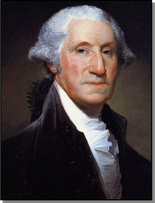 In a recent conversation with a doctor about religion and politics, he said to me that God doesn’t want us to love only those who are “on our side.” We are to serve faithfully all who are in need, and the truest extent of Christ’s love is shown when we still love and serve those with whom we disagree. The problem is that quite often we are quick to write people off as unworthy of our love. He then noted that God is neither Republican nor Democrat. American culture and politics these days seems so volatile and violent, so extremely polarizing, with people vehemently and angrily on one side or the other. Followers of Christ sometimes get sucked into this volatility when they assume that in order to be a “proper committed Christian” you must be on the side of conservatism and the Republicans. It would be an error to think that nobody who is Democrat with liberal tendencies could possibly be a Christian. Believe it or not, God is Lord of members of both political parties. This raises a question in my mind: “What is the role of Christian faith in politics? Is there one? Should religion and politics ever mix?” In a recent on-line newsletter I subscribe to, called The American Patriot’s Daily Almanac, by Bill Bennett and John T.E. Cribb, a portion of President George Washington’s farewell address was discussed. I found it very interesting that the first President of the United States understood the important role of religion in our nation, and that he saw clearly how it makes a difference not only in the lives of citizens, but also those who lead us. The newsletter noted that in a world still ruled by kings, President George Washington’s decision to not seek a third term clearly signaled that the United States would be governed by the people, not any ruler-for-life. Washington’s Farewell Address – really an open letter to the American people – appeared in newspapers on September 19, 1796. The president reminded his fellow citizens that national strength rests on the pillars of private morality, especially religion. The word he used to describe those pillars of American democracy is not “optional” or “desirable” or “helpful”; it is “indispensable.” Here is an excerpt from Washington’s farewell address: “Of all the dispositions and habits which lead to political prosperity, religion and morality are indispensable supports. In vain would that man claim the tribute of patriotism who should labor to subvert these great pillars of human happiness, these firmest props of the duties of men and citizens. The mere politician, equally with the pious man, ought to respect and to cherish them. A volume could not trace all their connections with private and public felicity. Let it simply be asked: Where is security for property, for reputation, for life, if the sense of religious obligation desert the oaths which are the instruments of investigation in courts of justice? And let us with caution indulge the supposition that morality can be maintained without religion. Whatever may be conceded to the influence of refined education on minds of peculiar structure, reason and experience both forbid us to expect that national morality can prevail in exclusion of religious principle. ’Tis substantially true that virtue or morality is a necessary spring of popular government. The rule indeed extends with more or less force to every species of free government. Who that is a sincere friend to it can look with indifference upon attempts to shake the foundation of the fabric?” I understand that in a religiously pluralistic culture such as what we live in today, one might ask, “But whose religion and morality should we follow?” Others believe that there is no place whatsoever for religion in politics or anything public. It seems that America is experimenting with all sorts and kinds of religion and morality, non-religion and immorality; and trying to embrace them all as if all beliefs are equal and equally good. I get it that this becomes a complicated thing to figure out, nevertheless, as a follower of the God we read of in the Bible, I recognize that the Christian principles presented in the message of the Gospel lead to life that flourishes, both now and in eternity. And when Washington states in his farewell address that religion and morality are indispensable supports to political prosperity, he’s thinking of religion and morality as proclaimed in the Bible…and that’s the kind of pillar that can support and guide anyone well, whether Democrat or Republican. Working together with you to influence our culture for Jesus, Tyler
0 Comments
|
Archives
August 2023
|
|
JOIN US!
|

